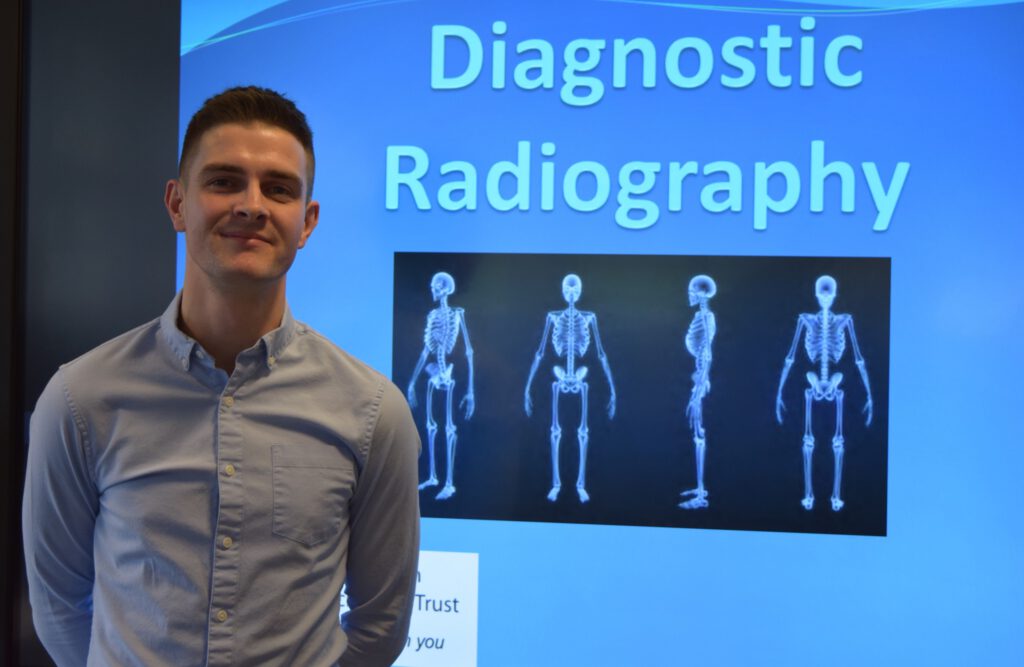Northern Ireland’s FE colleges launch new drive to promote business recovery through part-time learning

All six of Northern Ireland’s Further Education colleges have launched a major drive to help put part-time learning, skills, and business support at the heart of economic economy.
Located in all key economic centres across Northern Ireland, including Belfast, Londonderry, Newry, Bangor, Ballymena and Enniskillen, the six colleges employ more than 5,200 staff, support over 78,000 part-time students and provide business mentoring and services to over 10,000 businesses including Terex, Ryobi, Microsoft, Selective Travel and First Derivatives.
Last year, more than 78,700 students of all ages were enrolled on more than 1,660 part-time courses and training programmes across the region, as well as a range of accessible Higher Education options.
Now, as part of a new drive that helps to put the Northern Ireland FE sector at the forefront of the post Covid-19 recovery, the colleges have come together to launch a major campaign to raise awareness of the wide range of quality part-time and online learning opportunities available to support people and businesses rebound from the crisis.
Northern Ireland Economy Minister, Diane Dodds, said:
“For the last two decades, the FE sector has undergone a remarkable transformation and it will be a vital pillar in our economic recovery. The impressive suite of quality part-time courses on offer provides an opportunity for people to enhance their skills, improve their employability and even change careers. This is an invaluable asset and an investment in everyone’s future.”
Mark Donnelly (28), is just one of thousands of FE students who has benefited from part-time learning after switching careers to pursue his dream job in healthcare after taking this route to secure a Higher Education qualification.
After working in the construction industry for eight years as an electrician, Mark signed up to a part-time Adult Access course at his local FE college, which provided him with a direct route to progress a career in diagnostic radiography. With work experience provided as part of his studies at Belfast’s Royal Victoria and City Hospitals, Mark went on to Ulster University and graduated with a first class honours degree.
Now fully qualified and working in NI’s healthcare sector, Mark said:
“I love my job! The support I received from my FE College was exceptional. The lecturers went above and beyond to help us every day. There was also great financial support in the form of a bursary. I enjoyed learning as much as I could and knowing that I was on a path to changing my career to one that would bring me real job satisfaction and a life-changing experience.”
FE colleges deliver part-time education courses, online learning and flexible, affordable career development opportunities for people of all ages. The courses also provide a real and immediate boost to a range of business sectors, including health and social care, construction, engineering, ICT and enterprise.
Brian Doran, Principal and Chief Executive at Southern Regional College, said:
“At no point in our history has the focus on skills, education and business support ever been more important. Open, accessible and affordable – all six FE colleges are strategically located and already well-placed to make a real and positive impact on people’s lives and their prospects and on their confidence for the future.
“As we move towards recovery, and as we continue to adhere to government guidelines, this is now the right time for everyone to evaluate their part-time options, improve their skills and unleash the pent-up creativity and innovation which will be needed to help steer our economy forward.”
The six colleges of further and higher education participating include South Eastern Regional College, South West College, Southern Regional College, North West Regional College, Northern Regional College and Belfast Metropolitan College.
Northern Ireland’s Further Education sector goes beyond providing a skilled workforce. It also leaves a significant footprint on the economy as an industry in terms of job creation and wealth generation. Research* indicates that it contributes additional benefits to the economy, generating over £524 million of output in Northern Ireland and providing 7,139 full time equivalent jobs.
All six colleges have already been helping many small businesses move to an online presence so they can continue their business remotely during lockdown. They are also offering a range of fully funded online courses which can be accessed from mobile phones, computers and tablet devices and are funded by the Department for the Economy’s Skills Focus Programme.
In recent weeks, thousands of students and staff from across the sector have also combined their time, talents and skills gained through their college courses to support frontline efforts to fight the COVID-19 pandemic.
For support, information and advice, contact your local regional FE college.











Responses